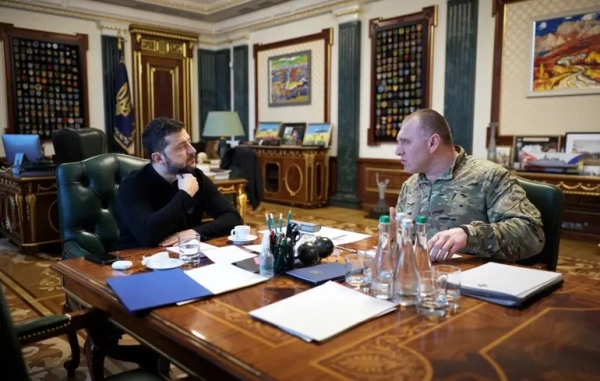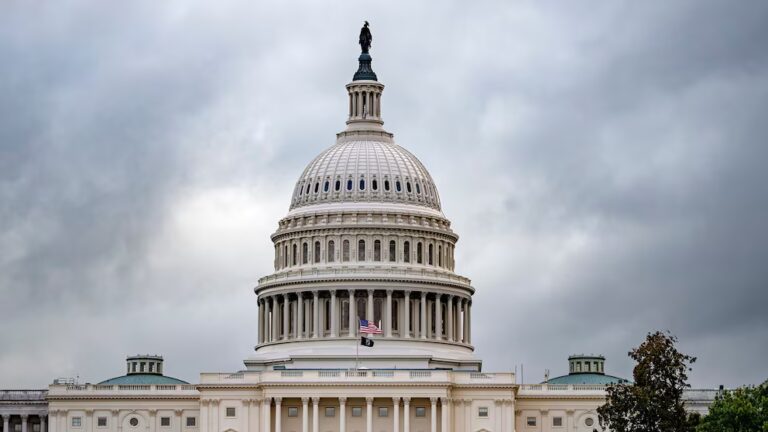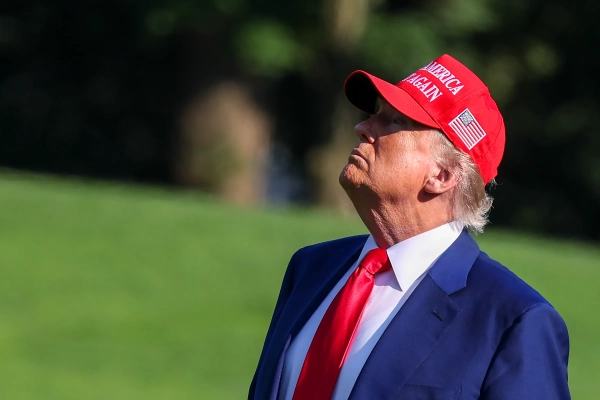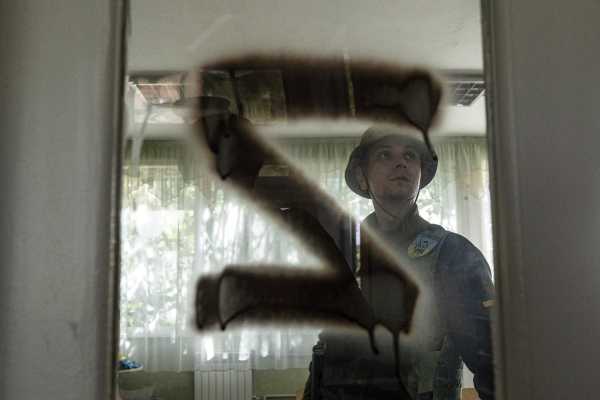
Ukraine’s counteroffensive against Russia is defying the odds, and it has sent Russian President Vladimir Putin to a new point of desperation: On Friday, he announced that Russia had, in an illegal move, annexed four occupied regions in Ukraine.
Earlier in the week he mobilized hundreds of thousands of Russians, as just as many Russians seem to be fleeing the country to avoid fighting in the conflict.
But there are still big questions about where the war goes from here and what will shape the conflict this winter and onward. To understand them, I spoke with experts on Europe, Russia, and international security, and listened to European leaders speaking candidly on the sidelines of the United Nations General Assembly last week.
Help inform the future of Vox
We want to get to know you better — and learn what your needs are. Take Vox’s survey here.
Three determining factors will play an outsized role in Ukraine’s future: support from America and European partners, the risks that Putin is willing to take, and the conflicting definitions of what victory might look like.
1) Will war fatigue overtake Europe and the US?
The war is being fought in Ukraine, and Ukrainians are certainly suffering most. But the costs incurred by Ukraine’s primary backers, the United States and Europe, will determine Ukraine’s capacity in defending itself against Russia. Without Western support, Ukraine’s recent victories in the counteroffensive will be difficult to sustain.
Western support for Ukraine is a crucial variable. The sanctions that the US, Western Europe, and some Asian countries have imposed on Russia continue to have a boomerang effect on the world economy. The winter ahead will change the fighting conditions on the ground and, equally importantly, the cold weather will remind Europe of its dependence on Russian fossil fuels for heat. If inflation continues and the energy crisis looms, will the US and an at times divided Europe become fatigued with the war and become less inclined to support it?
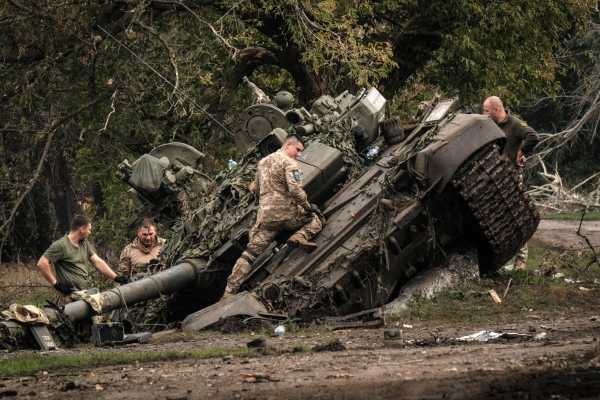
The US has sent more than $14 billion in military assistance to Ukraine. With each package comes new questions around whether this volume of security aid can be sustained — not just economically, but whether enough missiles and bullets exist in Western stockpiles to bolster Ukraine. Some defense experts are warning that the conflict is consuming weapons stockpiles faster than nations can refill them.
The West’s willingness to continue to send weapons may also depend on Ukraine’s momentum on the battlefield, says Kristine Berzina, a security researcher at the German Marshall Fund. “If the underdog is doing well, even if things are hard, there’s something in our societies where supporting the underdog as it takes on the big bad guy successfully — it’s just a good story. How can you not help them?” she said. “Whereas if it feels pessimistic and terrible and depressing, well, then it feels like a lost cause.”
A recent survey fielded by Data for Progress and the Quincy Institute for Responsible Statecraft suggests that only 6 percent of Americans polled see the Russian war in Ukraine as one of the “top three most important issues facing America today.” It ranked last, far behind inflation, the economy, and many domestic issues.
Another recent survey of 14 countries in Europe and North America from the German Marshall Fund found that in Italy, France, and Canada, climate is viewed as the primary security challenge, while the countries closer to Russia and Ukraine, on the eastern edges of Europe, named Russia or wars between countries
Though American military aid has been robust, Europe’s support has been much more mixed, with some European countries spending less on the war than they are spending on imported Russian oil and gas. “That point about the difference between the kind of aid that has been provided to Ukraine versus what’s been paid in oil revenue, it just blows my mind every time I hear it,” Andrea Kendall-Taylor, director of the Transatlantic program at the Center for a New American Security and a former US intelligence official with ties to the Biden administration, said recently on the New York Times’s Ezra Klein Show. Why is it happening? “I wish I knew. I don’t have a good answer,” she said.
Nathalie Tocci, director of the Istituto Affari Internazionali in Rome, told me that the European Commission has not held up its commitments. She says the sluggishness in disbursing economic aid to Ukraine is partly political but mostly due to bureaucratic hurdles.
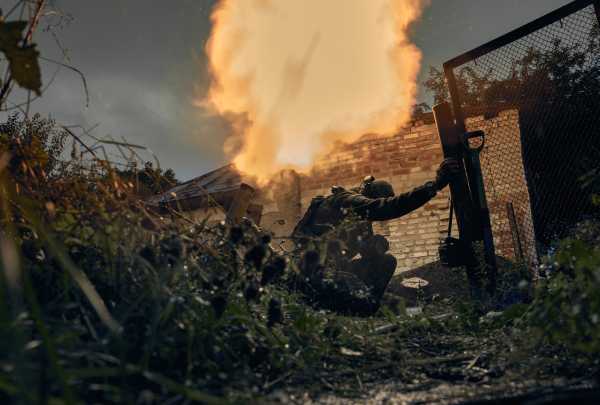
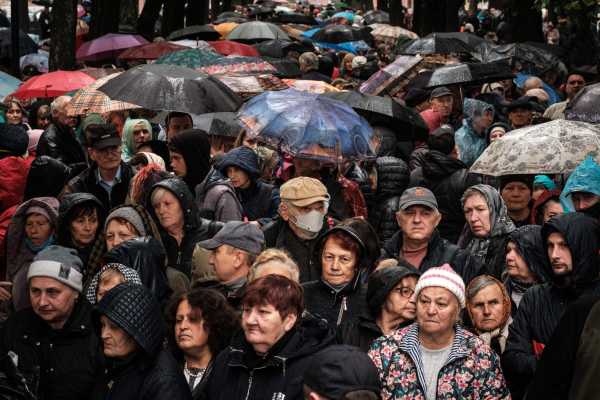
So far, European countries, even Hungary, have largely supported Ukraine. But for European leaders staunchly backing Ukraine, political challenges may emerge as the war further exacerbates domestic economic issues. Former British Prime Minister Boris Johnson’s exit this summer was hastened by the economy and inflation, issues whose multiple causes include the effects of the Ukraine conflict. French President Emmanuel Macron lost his parliamentary majority in June. Italian Prime Minister Mario Draghi’s government was split over Ukraine; it wasn’t the only reason for the collapse of his coalition, and now the far-right leader Giorgia Meloni is his successor. The war was not the immediate cause of any political leader’s downfall, but political changes in Europe are a reminder that governance is deeply connected to the emerging energy and economic crises.
If support in Europe wanes, there’s also the question of whether the US will be able to rally it. Since the Cold War, the US has put most of its military and diplomatic focus on first the Middle East and then, more recently, Asia. “Washington just has no real grasp of Europe today, doesn’t understand the centrality of the European Union, and tries to operate as if it doesn’t exist,” Max Bergmann, a former State Department official who is now at the Center for Strategic and International Studies, told me in June, in advance of a NATO summit.
The Biden administration has been hugely successful in dispatching US diplomats to unify Europe, but Washington is still operating with a deficit on the continent and without a deep understanding of a sustainable long-term Europe policy.
2) What risks is Putin willing to take?
Putin’s announcement of the annexation of Russian-held territories in Ukraine was a show of weakness, as was his partial mobilization of 300,000 troops. His unpredictability is a major X factor.
It’s unlikely that the mobilization will be effective because Russia doesn’t seem to have the highly trained personnel or advanced weapons to quickly alter their position in the war. “There will be bodies who will be there but they will not have equipment, they will not have significant training, and they will not really have the provisions for the conditions they’re going into, especially given that we’re again heading into the cold season,” Berzina said.
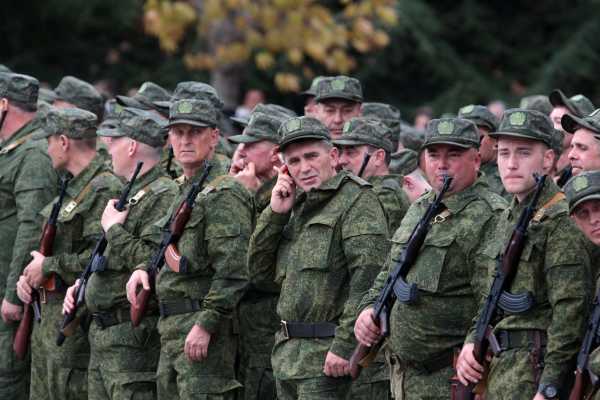
That could mean an increasingly desperate Putin. “It’s quite existential for him. It always has been,” said Jade McGlynn, a researcher of Russian studies at Middlebury College. “His whole entire idea of what Russia is — this great messianic power — depends on having Ukraine.”
Nowhere has that desperation been more apparent than in the rhetoric surrounding nuclear weapons. In the early hours of the war, Putin threatened “consequences you have never seen” against Ukraine’s supporters, and again in recent days he has offered veiled threats of using a small nuke. That would be norm-shattering and earth-shattering, figuratively and literally. Even threatening to use a nuke violates the norms of international relations.
Putin in his remarks on Friday emphasized that the United States was the only country that had used a nuclear weapon, (twice) on Japan during World War II. It seemed to be a retort to Biden’s United Nations speech last week in which he chastised Putin for his “reckless disregard for the responsibilities of the non-proliferation regime” while minutes later praising President Harry Truman, the president who authorized those nuclear attacks.
Another concern is, if things continue to go badly for Putin, whether he will expand the theater of war to other fronts and countries.
In the category of desperate acts falls what may potentially be an act of self-sabotage, a Russian attack on the Nord Stream gas pipeline that was reported earlier this week. It raises concerns that Russia may attack other critical energy infrastructure in Europe.
The nationalists in Russia, according to McGlynn, may pose the biggest threat to Putin, as they push him toward even more extreme means. They want him to go all-in on the war, even as the mobilization won’t likely alter Russia’s footing.
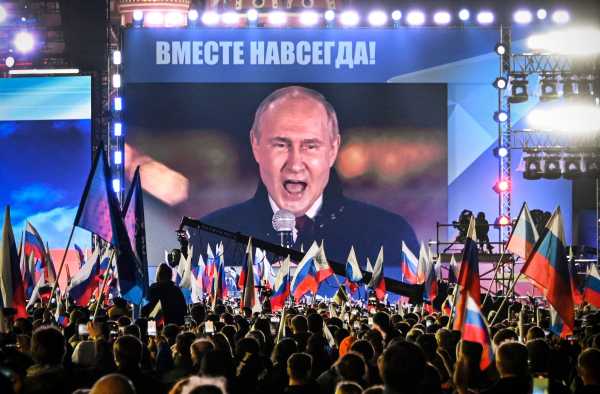
The extent to which Putin might be willing to repress Russians is also important. The calling up of reserves is one indicator, as is the shuttering of the independent newspaper Novaya Gazeta and other media outlets, and the arrests of critics and activists. That intensity of repression also limits the possibility for Russian domestic opposition standing up to Putin.
3) What is the definition of Ukraine winning?
The country that so many analysts predicted would fall in the first week of the invasion in February has endured the first 200 days of war, and Ukrainians say they are confident in carrying on the fight so long as they have ample support from the West.
A senior Ukrainian official, speaking recently in New York on the condition of anonymity, said that Ukraine was united in its war against Russia — and hugely depends on Western support. “The truth is that the battlefield today is the negotiating table with Putin. Because he respects strength,” they said.
“We are going to fight until we defeat Russia,” Oksana Nesterenko, a Ukrainian legal scholar currently at Princeton University, told me. Not because Ukrainians are so brave or have so many resources, she explained. “It’s about the future of the Ukrainian nation, about the future of Ukrainian democracy,” Nesterenko says. “We don’t have any choice.”
But there is a great deal of confusion as to how anyone defines victory. The Ukrainians, the Europeans, and the Americans “haven’t talked in specific terms about what we consider an acceptable outcome to this conflict,” Thomas Graham, a Russia expert at the Council on Foreign Relations, told me.
While the Ukrainians have expanded their demands in light of their successful counteroffensive and are now talking about nothing short of retaking the territory Russian has occupied since 2014, the United States and each European country seem to hold their own perspective. “The Germans and the French, at the leadership level, would accept a negotiated solution that might include some territorial concessions on the part of Ukraine as a way of de-escalating and helping deal with what they see as an increasingly difficult socio-economic situation,” Graham said.
On the Russian side, Putin initially claimed to want the demilitarization and de-Nazification — in essence, regime change — of Ukraine. And now he has annexed four provinces that he has long sought. “The possibility that Russia could win on its terms, that possibility is now very remote,” says Michael Kimmage, a Catholic University professor who specializes in Russia. “I do think that we could, in a very worrisome way, enter into a nihilistic phase of the conflict where Russia is not able to impose victory on the war, but will try to impose defeat on the other side. And maybe that’s the Russian version of victory in this war.”
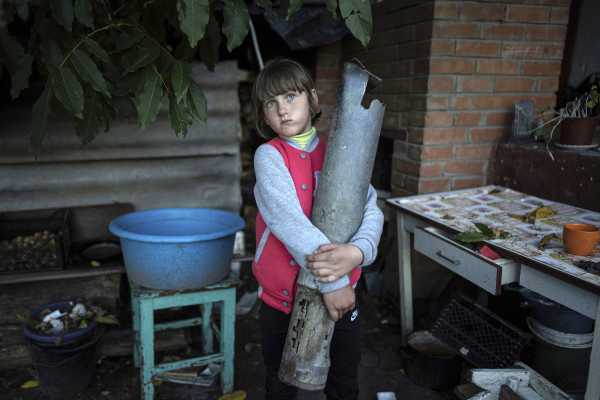
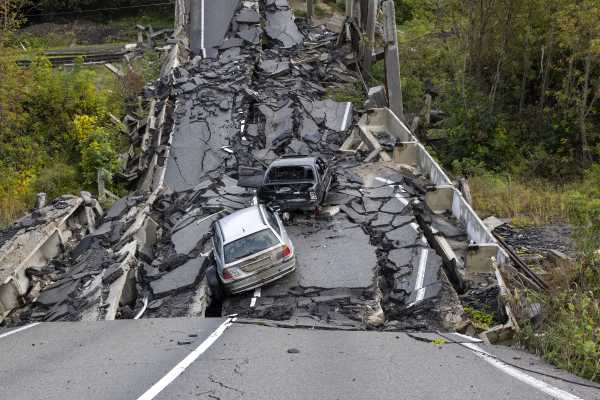
That would mean stretching the war on as long as possible, hence the massive mobilization, and the possibility of a war of attrition. McGlynn says that Putin’s notion of victory is at this point divorced from what the Russian army can actually do. “What we’re most likely to see is a way to entrench a situation on the ground in areas that they already control,” she told me.
In Washington, meanwhile, there has been little talk of what diplomacy among the parties might look like. It’s not that a team of negotiators is going to hash out a settlement over carryout, but ongoing diplomatic engagement between the US and Russia is going to be needed on a variety of levels and in a variety of forums to set the conditions for a future resolution — and even to address the narrow goal of averting any potential misunderstanding that could end up looking like the 1962 Cuban Missile Crisis.
Russia expert Fiona Hill who served in the Trump administration recently emphasized to the New Yorker the risks of Putin’s brinkmanship and the misunderstanding it breeds. “The problem is, of course, us misreading him, but also him misreading us,” she said. More communication could help. But Secretary of State Tony Blinken hasn’t met with Russian Foreign Minister Sergei Lavrov since January 2022 (they had a “frank” phone call in July). And the recent Data for Progress survey emphasized that a majority of Americans would like to see more diplomacy. “A majority (57 percent) of Americans support US negotiations to end the war in Ukraine as soon as possible, even if it means Ukraine making some compromises with Russia,” writes Jessica Rosenblum of the Quincy Institute.
The war’s endgame may be a long way off. Still, it’s no small feat that Turkey has brokered a deal to get Ukrainian grain to countries that need it and Saudi Arabia arranged for a prisoner swap between Russia and Ukraine. In the meantime, Biden national security adviser Jake Sullivan hosted talks between senior officials from Azerbaijan and Armenia last week, but the Biden administration has hardly been discussing avenues for diplomacy with Russia.
Though Graham praises President Biden’s handling of the war in Ukraine, he worries that the with-us-or-against-us rhetoric from the White House precludes opportunities for engagement with Russians. “If I fault the administration in any way — I don’t think it has articulated in public what this conflict is really about,” he told me. The US has alienated broad swaths of the Russian population through sanctions, and Biden has framed the conflict as an existential one between democracy and autocracy.
“Existential conflicts have a way of not persuading the other side, perhaps, to negotiate a solution to this problem that meets their needs, their minimal security requirements,” Graham told me. “In general, I think it is inappropriate to frame conflicts as a struggle between good and evil.”
Our goal this month
Now is not the time for paywalls. Now is the time to point out what’s hidden in plain sight (for instance, the hundreds of election deniers on ballots across the country), clearly explain the answers to voters’ questions, and give people the tools they need to be active participants in America’s democracy. Reader gifts help keep our well-sourced, research-driven explanatory journalism free for everyone. By the end of September, we’re aiming to add 5,000 new financial contributors to our community of Vox supporters. Will you help us reach our goal by making a gift today?
Sourse: vox.com
